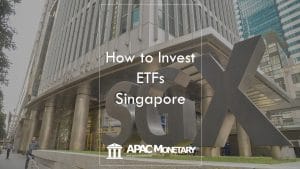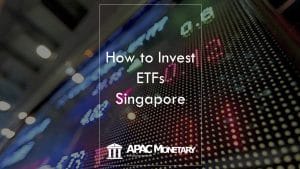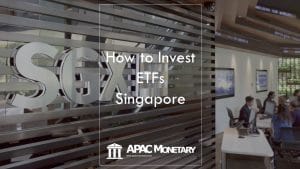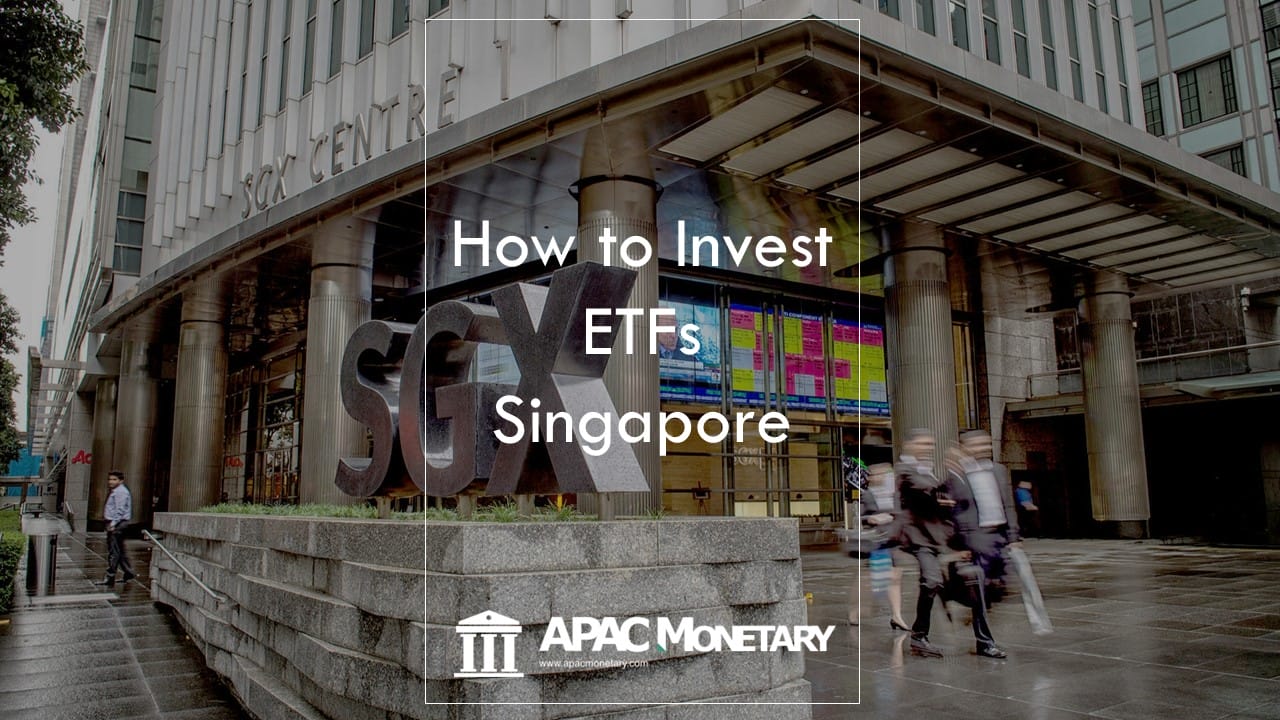Table of Contents
Here are five simple tips on how to invest ETF in Singapore and what you must do right now.
ETFs can be a great way to invest in the global economy. They provide exposure to a variety of asset classes and are an easy way to get started with investing. But before you invest, it’s important to understand the different types of ETFs and how they work. This article will provide five tips for deciding whether or not to invest in an ETF for Singapore.
What are ETFs?
An ETF is an investment vehicle that allows investors to purchase shares of securities in other companies. ETFs are often traded on exchanges and can be bought and sold both by individuals and institutional investors. They allow investors to invest in a variety of different types of securities, including stocks, bonds, mutual funds, and real estate.
What are the ETFs in Singapore?
Exchange-traded funds, or ETFs, are investment vehicles that allow investors to purchase a basket of securities without having to buy each security individually. In Singapore, there are a number of ETFs available for investors to choose from.
The SPDR STI ETF is the largest and most popular ETF in Singapore. It tracks the Straits Times Index (STI), which is made up of the 30 largest and most liquid stocks on the Singapore Exchange. The iShares MSCI Singapore Index ETF is another popular option, as it offers exposure to a diversified mix of large and small cap companies in Singapore.
There are a number of ETFs available in Singapore, including the SSE AIM (Singapore Exchange-listed Arrangement Mutual Fund) and the SIA BHD (Singapore International Airports Authority Bond Fund).
Which ETFs are better for you depends on your investment goals. For example, if you want to invest in stocks, the SSE AIM may be a better choice than the SIA BHD.
What are the Different Types of ETFs
There are three main types of ETFs: Registered Investment Companies (RIC), Sector Funds (SFs), and Security-Based Funds (SBFs). Each type has its own benefits and drawbacks.
Registered Investment Companies are the most common type of ETF, and allow investors to invest in a wide range of securities including stocks, bonds, mutual funds, and real estate. They typically have more complex rules and requirements than Sector Funds, which allow them to be less risky for individual investors.
Sector Funds are designed for investments in specific sectors such as health care or technology. SFs provide investors with exposure to a select number of stocks across multiple industries without having to purchase all the shares themselves. SBFs offer exposure to a selected number of stocks within one industry but without having to purchase them all at once.

Here are the most common types of ETFs
Sustainable ETFs
ETFs, or exchange-traded funds, have become popular investment tools in recent years. Many investors appreciate their tax efficiency and the ability to buy and sell shares throughout the day.
Sustainable ETFs are a subset of ETFs that focus on investments that promote environmental and social responsibility. These funds can include stocks of companies that are leaders in sustainability practices, or indexes that track sustainable investment themes.
Some Singaporean investors may be seeking to avoid companies with poor environmental or social track records, while others may simply want to invest in businesses that they believe will benefit from the growing trend toward sustainability.
There are a number of sustainable ETFs available for investors interested in this type of investment strategy.
Factor ETFs
Factor ETFs are a type of Exchange Traded Funds (ETF) that focus on a specific factor or group of factors in order to achieve better risk adjusted returns.
There are many different types of Factor ETFs, but some of the more common ones include Value, Size, and Momentum.
Factor ETFs can be used to target specific areas of the market, or they can be used to diversify an existing portfolio.
They are also a popular choice for investors in Singapore as they offer exposure to global markets while still being domiciled in Singapore.
Specialty ETFs
Specialty ETFs are those that track a specific index or sector. For example, there are ETFs that track the S&P 500 index, the Nasdaq 100 index, or specific sectors such as technology or health care.
In Singapore, there are a number of specialty ETFs available for investors to choose from. These include the SPDR STI ETF (track the Straits Times Index), the NikkoAM-STI ETF (track the Straits Times Index), and the ABF Singapore Bond Index Fund (track the Singapore government bond index).
Equity ETFs
An equity ETF is an investment fund that holds shares of various companies. It allows investors to buy a piece of the market, without having to purchase individual stocks. Equity ETFs are traded on stock exchanges and can be bought and sold throughout the day. There are many different types of equity ETFs, which include:
- Country-specific ETFs: These funds invest in stocks from a specific country or region. For example, an ETF that invests in Japanese stocks is classified as a Japan equity ETF.
- Sector-specific ETFs: These funds invest in stocks from a specific industry or sector, such as technology or healthcare.
- Style-based ETFs: These funds invest in stocks that fall into one of four categories: value, growth, blend, and income.
Currency ETFs
Currency ETFs are a type of Exchange Traded Fund. They are designed to track the performance of a particular currency or basket of currencies. Currency ETFs can be used to invest in a foreign currency, hedge against foreign currency risks, or to gain exposure to movements in exchange rates.
Currency ETFs are listed on stock exchanges and can be traded like stocks. They can be bought and sold throughout the day like other ETFs. The prices of currency ETFs will move up and down as the value of the underlying currencies change.
There are a number of Currency ETFs available for investors to choose from. Some popular Currency ETFs include the SPDR EURO STOXX 50 (FXE), the WisdomTree Japan Hedged Equity (DXJ), and the iShares MSCI Brazil Capped (EWZ).
Commodity ETFs
Commodity ETFs are investment vehicles that allow investors to hold a basket of commodities without having to purchase and store the underlying physical commodities. These ETFs track the price of a particular commodity or a commodity index and provide investors with exposure to the price movements of the underlying commodities.
There are a few different types of commodity ETFs available in the market. The most common type is the physically-backed commodity ETF, which holds physical commodities such as gold, silver, and oil in its portfolio. Another type is the futures-based commodity ETF, which invests in futures contracts of various commodities. The third type is the synthetic commodity ETF, which tracks an index that consists of stocks or other financial instruments that are related to commodities.
Commodity ETFs can be traded on stock exchanges around the world and can be bought and sold just like regular stocks.
Bond/Fixed Income ETFs
Bond fixed income ETFs are a type of exchange-traded fund that invests in fixed-income securities. These ETFs provide investors with exposure to a diversified portfolio of bonds, which can help reduce risk and volatility.
Bond fixed income ETFs are available in Singapore and can be traded on the stock exchange. They are typically passive funds that track an index, such as the Barclays Capital Aggregate Bond Index or the Merrill Lynch Corporate Bond Index.
ETFs offer investors several advantages over traditional mutual funds, including lower fees, transparency, and liquidity. Additionally, bond fixed income ETFs can be used to hedge against interest rate risk.

1. How to Choose the Right ETF for Your Investment Portfolio?
There are several factors you should consider when choosing an ETF for your portfolio:
The target market:
What is the target market for this particular? Is it aimed at people who want to invest in stocks or bonds?
The size of your portfolio:
How large is your portfolio overall? Do you want it divided equally between stocks and bonds? Or do you want some portion invested in each type?
How diversified your portfolio is:
Are there any specific sectors or markets you don’t want exposed to? Or do you want some parts of your portfolio invested in more than others?
The fees:
Will the fees associated with this particular be too high or too low? Are there better options available that will cost less?
2. Which ETFs are Better for You?
The different options available for investing in ETFs can give you a variety of choices when it comes to what type of investment vehicle you choose.
Some people prefer buying an individual stock and holding it until it falls out of favor or becomes too expensive; others prefer investing in mutual funds that track indexes like the S&P 500 or the NASDAQ 100. The best way to find out which option is right for you is to explore each ETF’s website and learn more about its features and benefits.
When it comes to choosing an ETF, it’s important to factor in how the investment will benefit your overall financial goals. Some people prefer buying an individual stock and holding it until it falls out of favor or becomes too expensive; others prefer investing in mutual funds that track indexes like the S&P 500 or the NASDAQ 100. The best way to find out which option is right for you is to explore each ETF’s website and learn more about its features and benefits.
What are the Best ETF and How to Invest ETF in Singapore?
Here are some of the best FinTech and ETFs to invest in Singapore:
- SPDR Straits Times Index ETF (SGX: ES3)
- Lion-OCBC Securities Hang Seng Tech ETF (SGX: HSS)
- SPDR Gold Shares ETF (SGX: O87)
- Phillip Sing Income ETF (SGX: OVQ)
- Nikko AM SGD Investment Grade Corporate Bond ETF (SGX: MBH)
- Xtrackers MSCI Singapore UCITS ETF (SGX: o9a)
- iShares USD Asia High Yield Bond Index ETF (SGX: O9P)

3. What are the considerations before buying ETFs in Singapore?
Some other factors you might want to consider when choosing an ETF include:
- how often the fund will be updated;
- whether you’re interested in short-term investing or long-term stability;
- whether dividends are paid;
Furthermore, when it comes to ETFs, Singaporean investors have a few things to consider before investing. Here are additional some tips on how to invest ETF in Singapore:
1) Look for well-diversified ETFs:
When buying ETFs, it is important to look for those that offer good diversification. This will help minimize your risk if one or more of the underlying investments performs poorly.
2) Consider the costs:
All investment products have associated costs, and ETFs are no exception. Make sure you understand what you are paying for and whether the fees are worth it.
3) Check the liquidity:
Like any other investment product, be sure to check the liquidity of an ETF before buying. This will ensure that you can easily sell it if needed.
4. Diversify your portfolio
Don’t put all your eggs in one basket. Diversifying your portfolio will help you minimize losses if one investment falls in value.
When it comes to how to invest ETF in Singapore, many experts will tell you that the key is diversification. By spreading your money out among a number of different investments, you reduce your risk of losing everything if one particular investment tank.
There are a number of different ways to diversify your portfolio. One easy way is to invest in a variety of different ETFs. ETFs offer instant diversification since they contain stocks from dozens or even hundreds of different companies.
Another option is to invest in assets that aren’t closely correlated with each other. For example, you might invest in stocks, bonds and commodities like gold or silver. Or you could invest in different regions of the world, such as Europe, Asia and North America. Whatever strategy you choose, make sure you don’t put all your eggs in one basket.
5. How to Invest in ETFs in Singapore.
To buy an ETF in Singapore, you’ll need to first identify the specific index you want to invest in. There are a variety of indices available, including the S&P 500 Index, the FTSE 100 Index, and the MSCI EMU Index. To buy an ETF that invests in other assets such as stocks or bonds, you’ll also need to purchase this type of investment.
Hold an ETF
When it comes to holding an ETF, be sure to keep it in a safe place and make regular checks on its performance. Make sure you understand the features of each individual ETF and how they can benefit your investment portfolio. You can find more information about investing in ETFs here: ETFs for Singapore.
Use an ETF to Invest in Other Assets
You can also use an ETF to invest in other assets outside of stock or bond options. This could include fiat currencies like Euros or Chinese yuan, real estate stocks like REITs (Real Estate Investment Trusts), and commodities like oil futures or gold bullion shares. Be sure to research each asset before investing so that you’re getting the best possible return on your money.

Summary: How to Invest ETF in Singapore
ETFs are an investment that can be beneficial for both individual investors and portfolios. Buying an ETF can be a great way to get started, while holding an ETF can help you grow your portfolio over time. Use ETFs to invest in other assets, such as stocks or bonds, to see greater returns.










